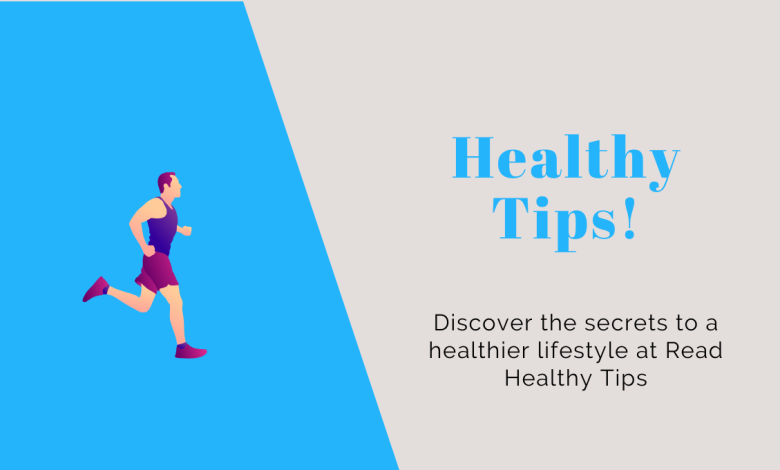
Want to improve your health as an adult? Check out these 10 tips covering everything from diet and exercise to stress management and sleep. Incorporate these tips into your daily routine for a happier and healthier life.
Introduction:
As we age, it becomes increasingly important to take care of our health. However, with so much information out there, it can be difficult to know where to start. In this article, we will provide 10 tips for adults to help them stay healthy and prevent illness. These tips cover everything from diet and exercise to stress management and sleep. By incorporating these tips into your daily routine, you can improve your overall well-being and enjoy a happier, healthier life.
Tip 1: Eat a Balanced Diet
Eating a balanced diet is essential for good health. This means consuming a variety of fruits, vegetables, whole grains, lean proteins, and healthy fats. These foods provide the nutrients your body needs to function properly and prevent chronic diseases. Additionally, it is important to limit your intake of processed and sugary foods, as they can contribute to weight gain and other health problems.
Tip 2: Exercise Regularly
Physical activity is another key component of a healthy lifestyle. Regular exercise can help lower your risk of chronic diseases, improve your mood, and increase your energy levels. The Centers for Disease Control and Prevention recommends adults aim for at least 150 minutes of moderate-intensity aerobic activity or 75 minutes of vigorous-intensity aerobic activity, or a combination of both, per week.
Tip 3: Get Enough Sleep
Sleep is crucial for good health. Not getting enough can lead to a host of problems, including weight gain, depression, and an increased risk of chronic diseases. Adults should aim for 7-9 hours of sleep per night. To improve your sleep, establish a regular sleep schedule, avoid caffeine and electronics before bed, and create a comfortable sleep environment.
Tip 4: Manage Stress
Stress can take a toll on your physical and mental health. It can lead to a host of problems, including high blood pressure, heart disease, and depression. To manage stress, try to identify the sources of stress in your life and develop strategies to cope with them. This may include relaxation techniques such as yoga or meditation, spending time with friends and family, or taking up a hobby.
Tip 5: Stay Hydrated
Drinking enough water is essential for good health. Water helps to flush toxins out of your body and transport nutrients to your cells. Adults should aim for at least 8 cups of water per day, more if they are physically active or it is hot outside.
Tip 6: Avoid Smoking and Limit Alcohol Consumption
Smoking and excessive alcohol consumption can lead to a host of health problems. Quitting smoking and limiting your alcohol intake can improve your heart health, reduce your risk of cancer, and improve your overall well-being.
Tip 7: Get Regular Check-Ups
Regular check-ups can help you stay on top of your health and catch potential problems early. This includes regular physical exams, screenings, and dental check-ups.
Tip 8: Take Care of Your Mental Health
Mental health is just as important as physical health. It is important to take care of your mental health by managing stress, getting enough sleep, and connecting with others. If you are feeling down or struggling, don’t be afraid to reach out for help.
Tip 9: Practice Safe Sun Exposure
Too much sun exposure can lead to skin cancer and other health problems. To protect your skin, use sunscreen with an SPF of at least 30, wear protective clothing, and avoid the sun during peak hours.
Tip 10: Keep Learning
Learning new things is good for your brain and mental health. Keep your brain active by reading, taking classes, and learning new skills.
Frequently Asked Questions:
Question 1: How much water should I drink per day?
Adults should aim for at least 8 cups of water per day, more if they are physically active or it is hot outside.
Question 2: How much exercise do I need per week?
The Centers for Disease Control and Prevention recommends adults aim for at least 150 minutes of moderate-intensity aerobic activity or 75 minutes of vigorous-intensity aerobic activity, or a combination of both, per week.
Question 3: How many hours of sleep should I get per night?
Adults should aim for 7-9 hours of sleep per night.
Question 4: What are some ways to manage stress?
Ways to manage stress include relaxation techniques such as yoga or meditation, spending time with friends and family, or taking up a hobby.
Question 5: How can I quit smoking?
Quitting smoking can be difficult, but there are many resources available to help you quit. This includes nicotine replacement therapy, prescription medications, and counselling.
Summary:
We provided 10 tips for adults to help them stay healthy and prevent illness. These tips cover everything from diet and exercise to stress management and sleep. By incorporating these tips into your daily routine, you can improve your overall well-being and enjoy a happier, healthier life.





One Comment